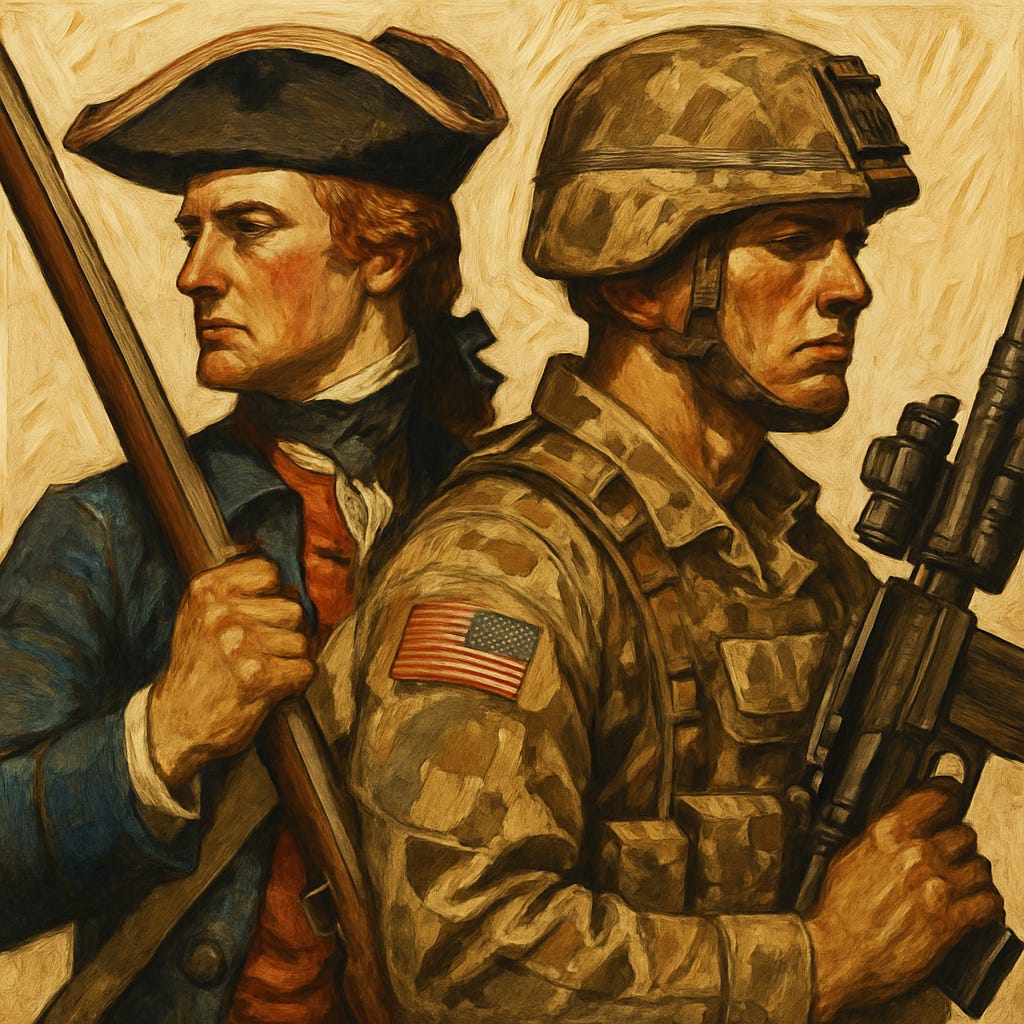Independence Day
A reflection on America's first national mobilization.
250 years ago, a war hero, businessman, and patriot named George Washington assumed command of a new force called the Continental Army. He declined a salary, becoming, in effect, America’s first dollar-a-year man in a desperate, high-stakes cause.
The colonies were facing down the mightiest and richest empire in the world. Making war against their king and their brothers by blood and history. And they started with serious disadvantages of supply and organization. American industry was primitive, Britain’s world-leading. Most of the fabric on their backs was imported from their newfound enemy; many of their arms were purchased or stolen from the same. The Patriot militias were brave but ragtag and ill-disciplined; the British Army was large, blooded, and reinforced by foreign mercenaries and Indian allies. The Patriot navy didn’t exist; Britain’s ruled the waves.
That was the balance of power. Now consider the stakes. Ringleaders like Washington surely knew that defeat would lead inevitably to the gallows; the average Patriot knew they would face punishments far worse than the Intolerable Acts and other legislation they had suffered to that point.
But if they won, they would have their liberty and their country. They would govern themselves—free to expand, trade, and prosper. So the Patriots went to war with the army they had.
For the first time but not the last, Americans mobilized for war. They spun cloth at home to reduce their dependence on the enemy. They established arsenals at Harper’s Ferry and Springfield, ironworks in Pennsylvania, and shipyards along the coast. They built a lean, asymmetric anti-navy to harass British shipping and take the fight to the enemy’s doorstep. They enlisted a roster of lethal allies to provide the funds, forces, and supplies to take down a superpower.
And they won.
We talk a lot about the mobilization lessons of the 20th century. As we prepare for the Fourth of July (and America’s 250th anniversary next year), let’s remember the Patriots and their example. The problems we face today are well-known, serious, and in some cases existential. But we have many advantages that the Patriots did not have when they made the incredibly risky decision to put it all on black and spin the wheel.
Will we have their spirit, boldness, and bravery to fight for our independence today?





